Methodology
The research for this study was conducted from October 2020 to March 2021 by Dr. Maria Fanou, White & Case Postdoctoral Research Fellow in International Arbitration, School of International Arbitration, Centre for Commercial Law Studies, Queen Mary University of London, together with Ms. Norah Gallagher, Deputy Director, School of International Arbitration, Centre for Commercial Law Studies, Queen Mary University of London.
An external focus group composed of senior in-house counsel, senior representatives of arbitral institutions, private practitioners and arbitrators provided valuable feedback on the draft questionnaire.
The research was conducted in two phases: the first quantitative and the second qualitative.
- Phase 1: An online questionnaire of 31 questions (of which 20 were substantive in nature) was completed by 1218 respondents between 8 October 2020 and 21 December 2020. The survey sought the views of a wide variety of stakeholders in international arbitration. 60% of respondents declared that they have been personally involved in more than five international arbitrations over the past five years. The respondent group consisted of counsel (private practitioners) (43%), full-time arbitrators (15%), in-house counsel (private sector) (7%), in-house counsel (government or state entity) (2%), 'arbitrator and counsel in approximately equal proportion' (11%), arbitral institution staff (5%), and others47 (17%). The questionnaire responses were analysed to produce the statistical data presented in this report. A reference to 'respondents' in the report refers to those respondents who answered that particular question. Each of the substantive questions was answered by more than 75% of respondents. Due to rounding up/down of individual figures, the aggregate of the percentages shown in some charts may not equal 100%.
- Phase 2: 198 video or telephone interviews, ranging from ten to 110 minutes long, were conducted between early November 2020 and early March 2021. The qualitative information gathered during the interviews was used to supplement the quantitative questionnaire data, to nuance and further explain the findings on particular issues covered in the survey. Interviewees were based in 39 countries and 53 cities across all continents (except Antarctica). The pool of interviewees reflected all categories across the diverse respondent group. Interviewees either contacted us directly requesting an interview or were contacted on the basis of their consent in the questionnaire.
The following charts illustrate the composition of the respondent pool by: primary role; geographic region of primary practise or operation; primary industry; and experience in international arbitration.
School of International Arbitration, Queen Mary University of London
The School of International Arbitration (SIA) was established in 1985 within the Centre for Commercial Law Studies. The SIA was an innovation at that time. This was because the founders of the School believed international dispute resolution should be a standalone substantive subject rather than a side-discipline of civil procedure, international or comparative law. This is now widely accepted and has inspired several institutions around the world to set up similar programmes.
Today the School is acknowledged as the global leading postgraduate teaching and research centre in international dispute resolution. It has become a centre of excellence for research and teaching of international dispute resolution. It attracts some of the best students with an interest in arbitration globally each year. Students are provided both theoretical and practical training on all aspects of international dispute resolution from advocacy & negotiation skills, to enforcement of arbitral awards.
Since its establishment, more than 4,000 students from more than 110 countries have graduated from the SIA. More than 60 PhD students have successfully completed their doctoral studies. Many of our graduates are now successfully practicing arbitration around the world as advocates, in-house counsel, academics and arbitrators. Others serve international organisations, including UNCITRAL, the World Bank and UNCTAD, or work for major arbitration institutions.
The SIA is located in Queen Mary's postgraduate law centre in Lincoln's Inn Fields, the centre of legal London. Its key location facilitates support from the international arbitration community for our students including professional events, internships and mentoring. In addition to the London programme, the disputes resolution LLM is taught in Paris as well as online for our Distance Learning students. There is an active and growing alumni group across all of the programmes.
The School's goals are:
Scholarship: To produce leading scholarship that advances the intellectual and theoretical development of the discipline of international dispute resolution.
Education: To offer rigorous and innovative programmes for the global education of future generations of international dispute resolution lawyers.
Professional engagement: To engage with international dispute resolution practice and professional institutions and organisations. This includes our cocurricular practitioner seminars and the popular annual SIA & Freshfields lecture.
Impact: To offer consulting services and advice to governments and nongovernmental agencies that wish to develop a non-judicial settlement of dispute mechanism, as well as training for lawyers in private practice, in-house lawyers, judges, arbitrators and mediators.
For further information, please visit the School's website: www.arbitration.qmul.ac.uk.
47 This includes, for example, academics, judges, representatives of trade associations, third-party funders, government officials, expert witnesses, economists, entrepreneurs, law students, business development experts, and respondents who did not specify their position.
White & Case means the international legal practice comprising White & Case LLP, a New York State registered limited liability partnership, White & Case LLP, a limited liability partnership incorporated under English law and all other affiliated partnerships, companies and entities.
This article is prepared for the general information of interested persons. It is not, and does not attempt to be, comprehensive in nature. Due to the general nature of its content, it should not be regarded as legal advice.
© 2021 White & Case LLP









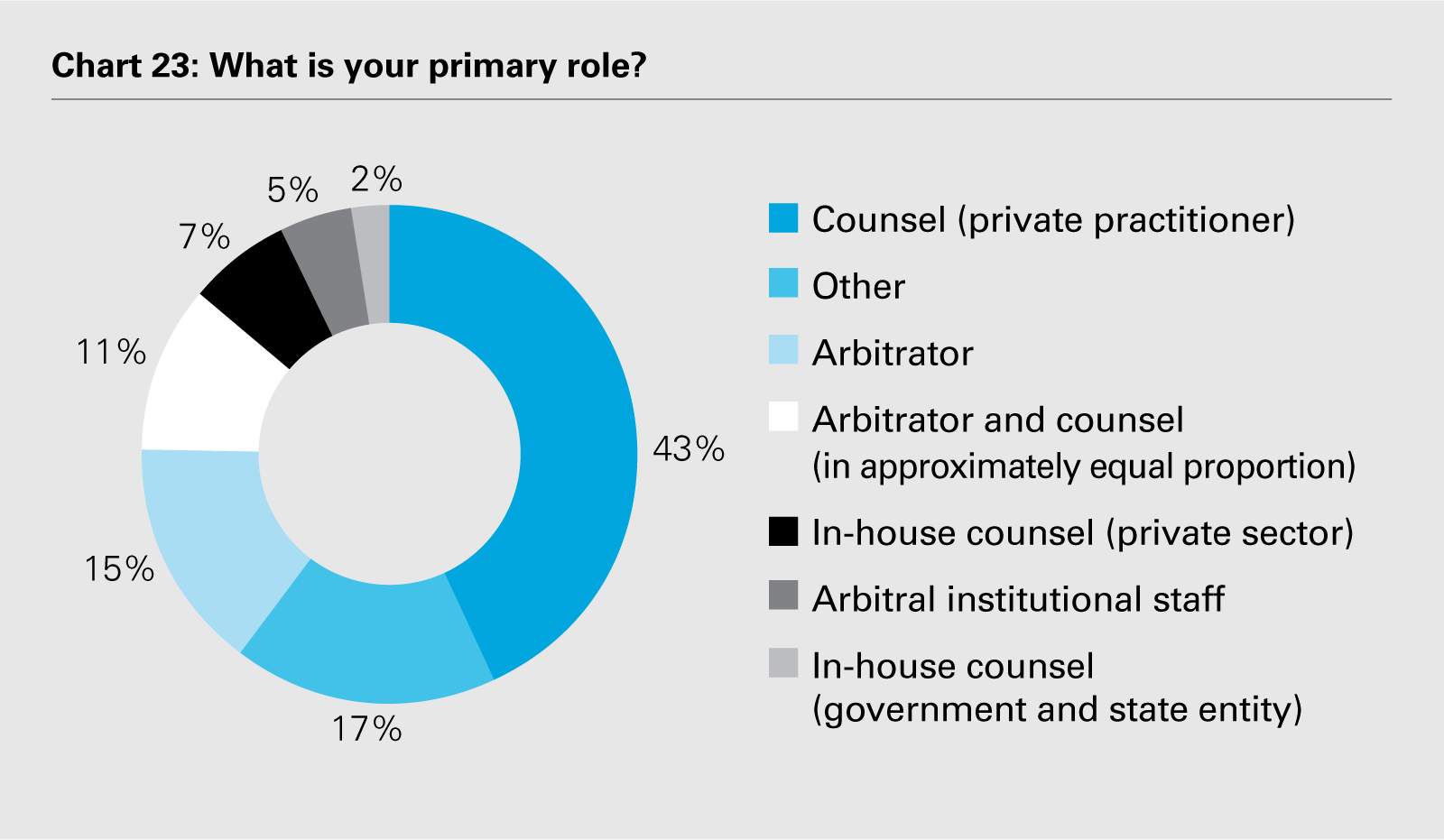 View the full PDF: What is your primary role?
View the full PDF: What is your primary role?
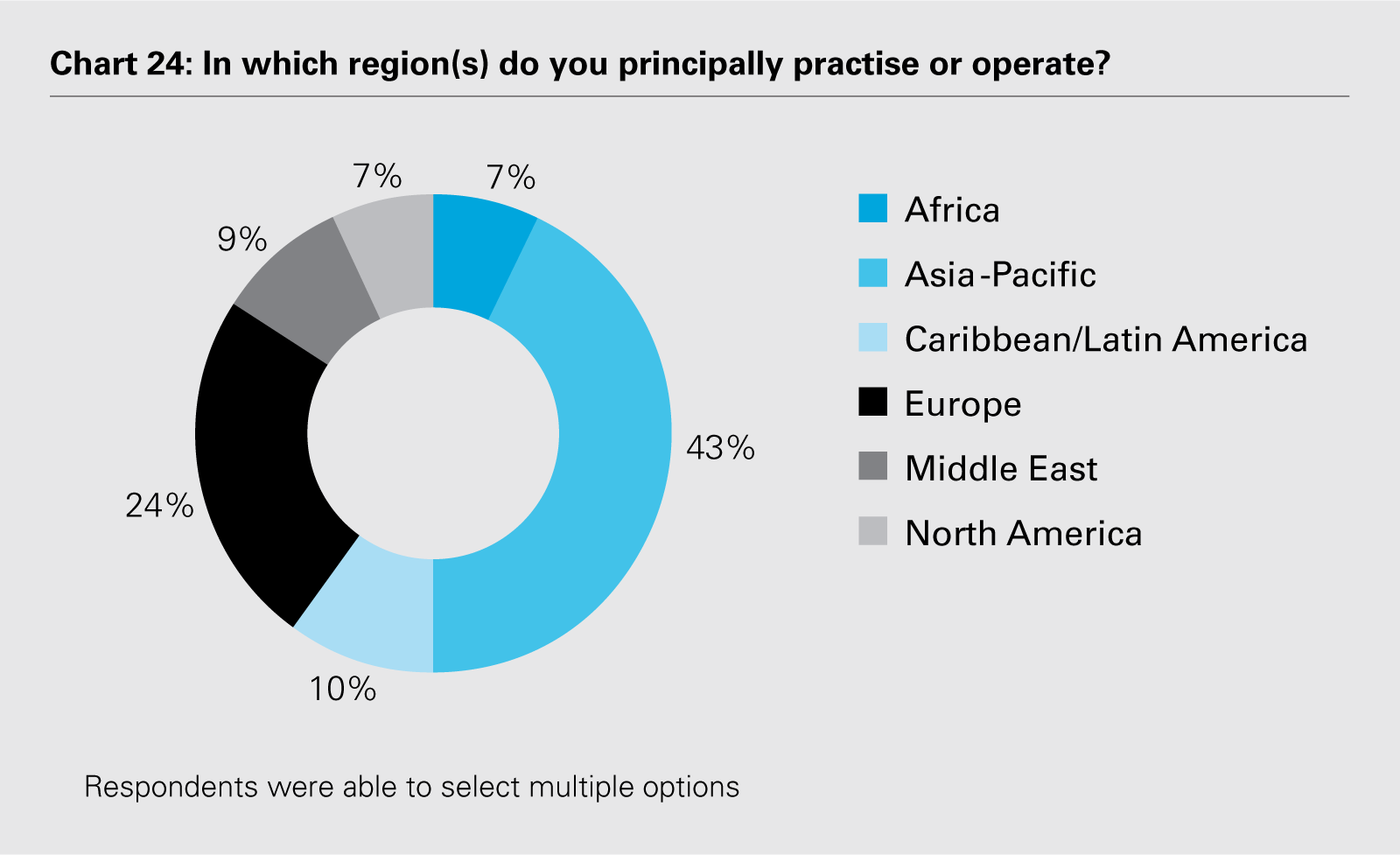 View the full PDF: In which region(s) do you principally practise or operate?
View the full PDF: In which region(s) do you principally practise or operate?
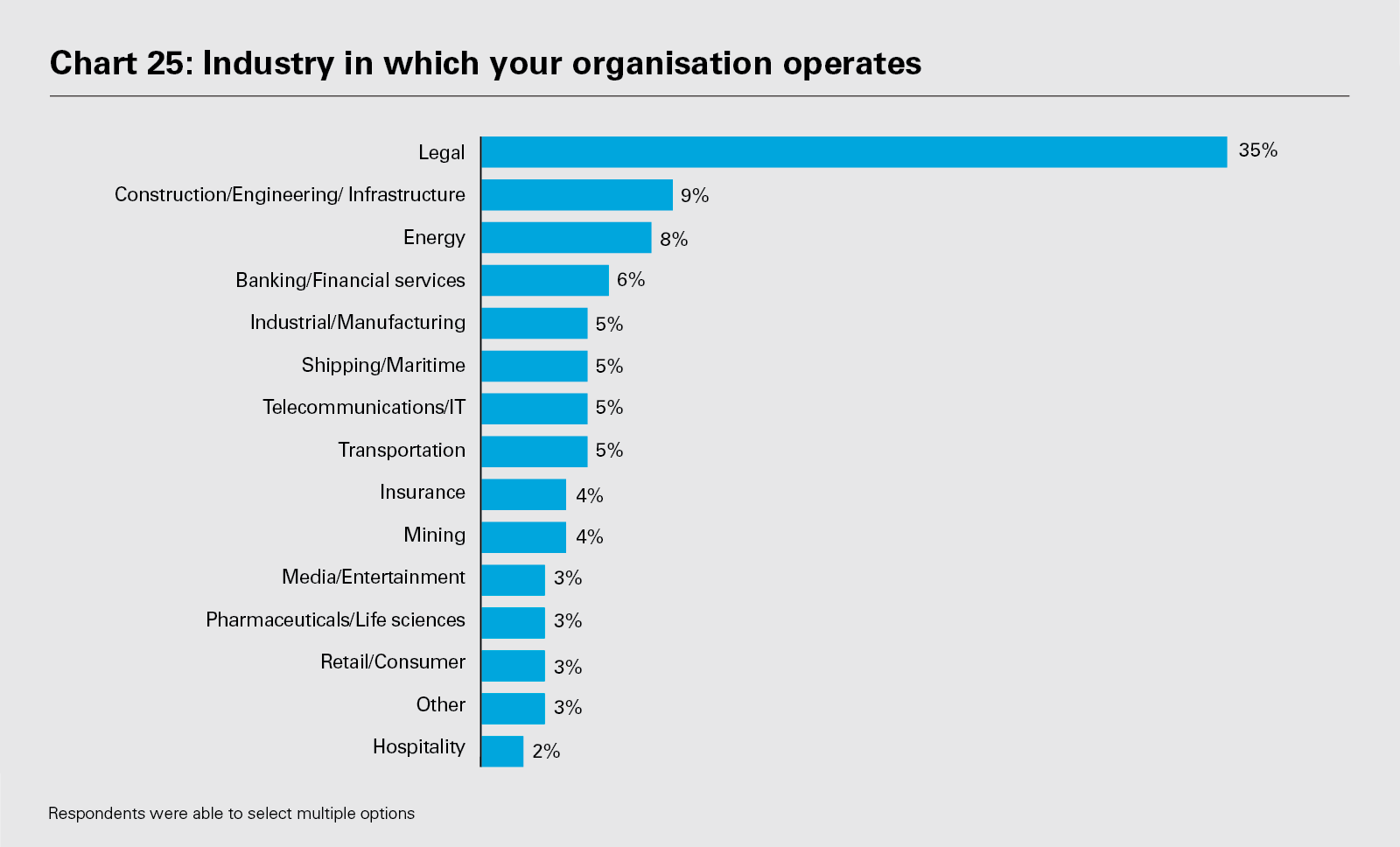 View the full PDF: Industry in which your organisation operates
View the full PDF: Industry in which your organisation operates
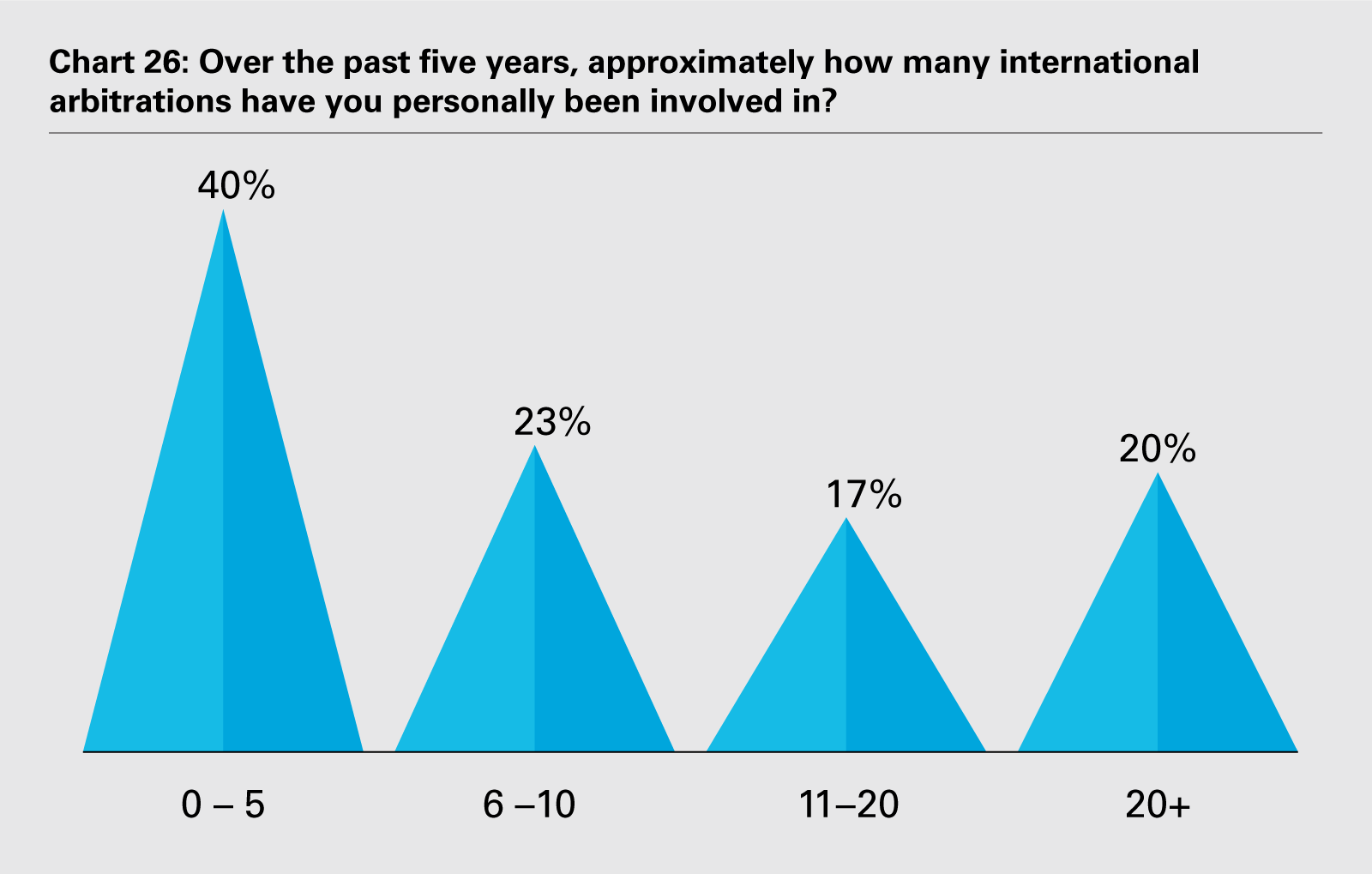 View the full PDF: Over the past five years, approximately how many international arbitrations have you personally been involved in?
View the full PDF: Over the past five years, approximately how many international arbitrations have you personally been involved in?
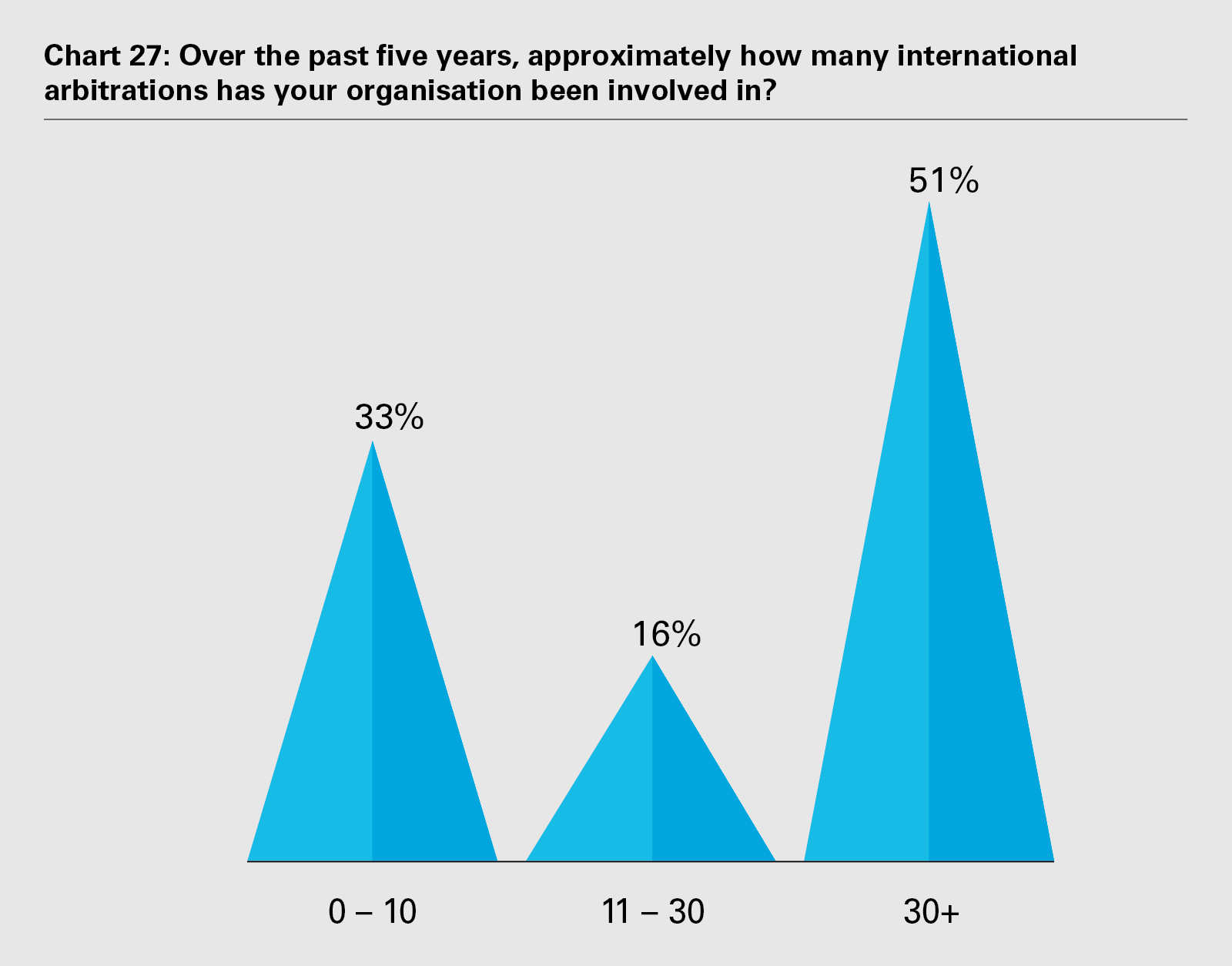 View the full PDF: Over the past five years, approximately how many international arbitrations has your organisation been involved in?
View the full PDF: Over the past five years, approximately how many international arbitrations has your organisation been involved in?